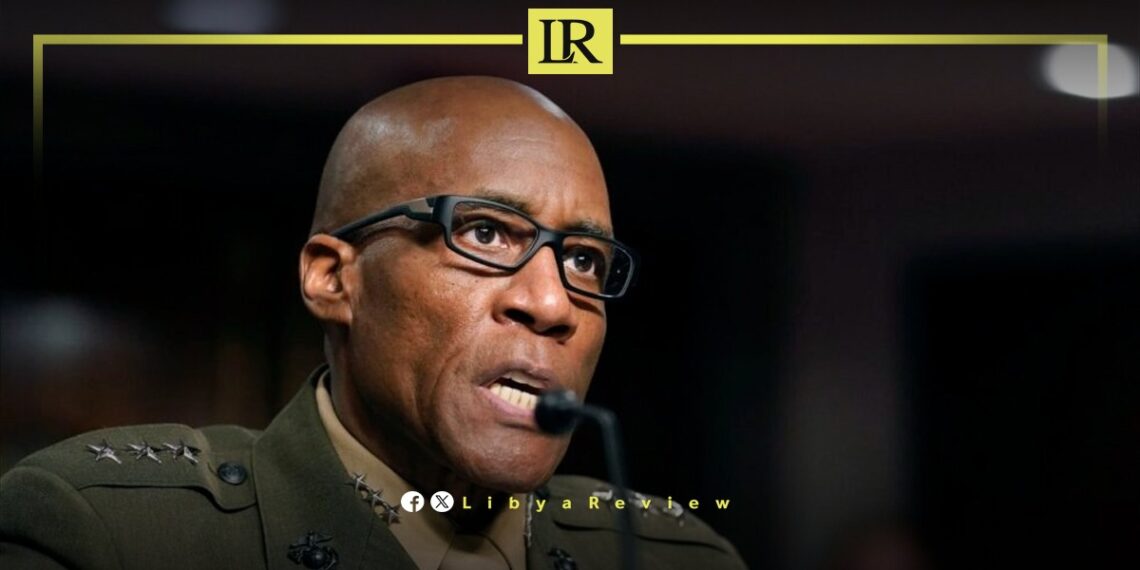A top U.S. Africa Command official stated on Monday that, given the lack of welcome for American forces in Niger following the military coup, the United States is seeking new allies in the region, including Libya.
General Michael Langley of the U.S. Marine Corps addressed journalists ahead of the 2024 African Chiefs of Defence Conference in Botswana. “We are working through diplomatic and defence channels with Libya,” he said.
Following Langley’s remarks about increasing engagement with Libya, a U.S. defence official told Task and Purpose military news site, “The United States does not have forces in Libya and has no plans to deploy troops there soon.”
Langley’s comments come after the Pentagon announced that the U.S. would withdraw its forces from Niger. Prior to the planned withdrawal, the U.S. had approximately 1,000 troops and defence contractors stationed at two air bases in Niger.
On Monday, General Commander of the Libyan National Army (LNA), Field Marshal Khalifa Haftar, welcomed an American delegation led by US Special Envoy to Libya Richard Norland and the US Embassy’s Chargé d’Affaires Jeremy Berndt at the LNA General Command headquarters in Benghazi.
During their meeting, they discussed the latest political developments in Libya, emphasizing the continuous efforts needed to prepare the country for presidential and parliamentary elections.
Both parties stressed the importance of supporting the United Nations Support Mission in Libya (UNSMIL) in reaching consensus solutions that will pave the way for these crucial elections.
The US delegation also highlighted the significant role of the LNA in maintaining security and stability in Libya. They underscored the importance of joint efforts between the LNA and the United States in combating terrorism and extremism.
Libya has been in turmoil since the 2011 uprising that toppled Muammar Gaddafi. The country has since been divided between rival factions, with the Government of National Unity (GNU) based in Tripoli and the Parliament’s designated government in the east. Efforts to unify the country and establish a stable political framework have been ongoing, with the United Nations playing a pivotal role in mediating between the conflicting sides.
A top U.S. Africa Command official stated on Monday that, given the lack of welcome for American forces in Niger following the military coup, the United States is seeking new allies in the region, including Libya.
General Michael Langley of the U.S. Marine Corps addressed journalists ahead of the 2024 African Chiefs of Defence Conference in Botswana. “We are working through diplomatic and defence channels with Libya,” he said.
Following Langley’s remarks about increasing engagement with Libya, a U.S. defence official told Task and Purpose military news site, “The United States does not have forces in Libya and has no plans to deploy troops there soon.”
Langley’s comments come after the Pentagon announced that the U.S. would withdraw its forces from Niger. Prior to the planned withdrawal, the U.S. had approximately 1,000 troops and defence contractors stationed at two air bases in Niger.
On Monday, General Commander of the Libyan National Army (LNA), Field Marshal Khalifa Haftar, welcomed an American delegation led by US Special Envoy to Libya Richard Norland and the US Embassy’s Chargé d’Affaires Jeremy Berndt at the LNA General Command headquarters in Benghazi.
During their meeting, they discussed the latest political developments in Libya, emphasizing the continuous efforts needed to prepare the country for presidential and parliamentary elections.
Both parties stressed the importance of supporting the United Nations Support Mission in Libya (UNSMIL) in reaching consensus solutions that will pave the way for these crucial elections.
The US delegation also highlighted the significant role of the LNA in maintaining security and stability in Libya. They underscored the importance of joint efforts between the LNA and the United States in combating terrorism and extremism.
Libya has been in turmoil since the 2011 uprising that toppled Muammar Gaddafi. The country has since been divided between rival factions, with the Government of National Unity (GNU) based in Tripoli and the Parliament’s designated government in the east. Efforts to unify the country and establish a stable political framework have been ongoing, with the United Nations playing a pivotal role in mediating between the conflicting sides.


